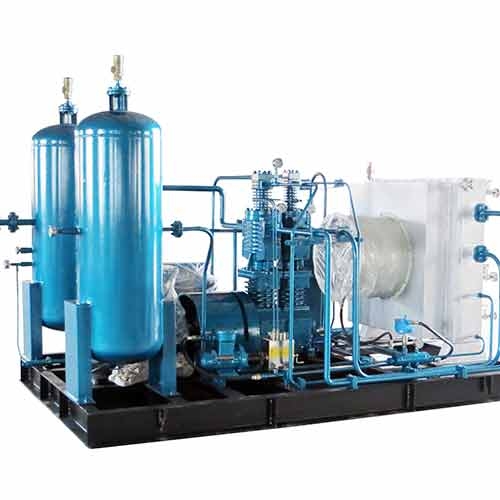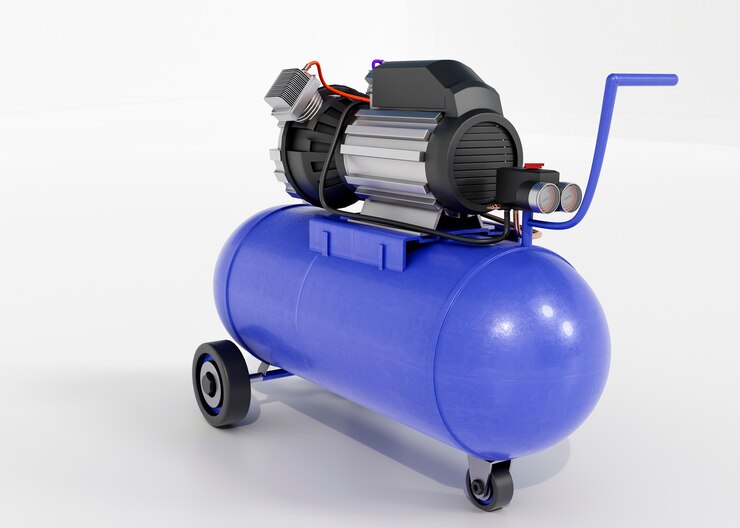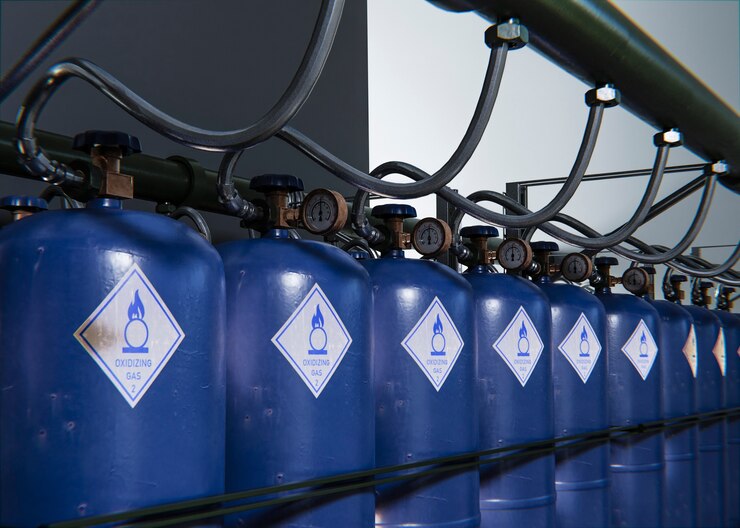Sulfur Dioxide (SO2) Compressor Solutions: Enhancing Industrial Processes
The sulfur dioxide (SO2) compressor is a cornerstone in a wide array of industrial processes, where SO2 holds a pivotal role. This indispensable machinery guarantees the effective management, conveyance, and utilization of SO2, thereby bolstering industrial efficiency, safety, and environmental conscientiousness.
Understanding Sulfur Dioxide (SO2)
What Is SO2?
Sulfur Dioxide (SO2) constitutes a chemical compound formed from sulfur and oxygen. This colorless gas possesses a distinctive, choking odor and arises from both natural sources and industrial activities.
Key Properties
SO2 exhibits notable characteristics, notably its ability to dissolve in water, leading to the creation of sulfurous acid, a substantial contributor to the occurrence of acid rain. It is denser than air and can accumulate in low-lying areas, presenting health hazards. Emitted predominantly through the combustion of sulfur-containing fossil fuels like coal and oil, SO2 stands as a potent air pollutant.
Industrial Application
SO2 boasts diverse industrial applications, including its vital role in sulfuric acid production. Additionally, it finds use as a preservative in the food and beverage sector to thwart spoilage. In environmental applications, SO2 is harnessed in wastewater treatment for chlorine removal and serves as a reducing agent in various chemical processes.
Nevertheless, SO2 emissions bear significant environmental and health consequences. Prolonged exposure can lead to respiratory problems and contribute to the formation of acid rain, which adversely affects ecosystems. Hence, effective management of SO2 emissions is imperative to mitigate its adverse impacts on both human health and the environment.
Role of SO2 Compressors
What is an SO2 Compressor?
SO2 compressors are specialized machines meticulously crafted for the specific purpose of compressing sulfur dioxide (SO2) gas. Their primary function revolves around elevating the pressure of SO2, transitioning it from a low-pressure gaseous state to a higher-pressure form. This compression process proves indispensable in numerous industrial scenarios where pressurized SO2 finds essential application.
How SO2 Compressors Function
The inner workings of SO2 compressors hinge on mechanical components such as pistons or rotors. They commence their operation by drawing in the low-pressure SO2 gas, subsequently diminishing its volume. This sequence of compression leads to a proportional surge in gas pressure, rendering it amenable for a diverse range of industrial processes. Once compression is achieved, the pressurized SO2 can be efficiently conveyed through pipelines or safely stored in tanks for later utilization.

Importance of SO2 Compression in Industrial Processes
The significance of SO2 compression reverberates throughout a spectrum of industrial domains. Notably, it assumes a pivotal role in the production of sulfuric acid, where pressurized SO2 becomes an integral ingredient in the synthesis of this paramount industrial acid. Beyond this, SO2 compression serves as a linchpin in the refrigeration and cooling sector, particularly in cases where SO2 acts as a refrigerant.
Furthermore, its application extends to wastewater treatment, where pressurized SO2 serves as a potent tool for chlorine removal from water. In summation, SO2 compressors stand as enablers, facilitating the secure and efficient utilization of sulfur dioxide across a myriad of industrial processes, firmly ingrained as indispensable components within these industries.
Applications of SO2 Compression
Industrial Uses of Compressed SO2
Compressed sulfur dioxide (SO2) find a multitude of industrial applications. One primary use is in the production of sulfuric acid, a vital chemical for industries like fertilizers, batteries, and metallurgy. SO2, when compressed, reacts with oxygen to form sulfur trioxide, a precursor to sulfuric acid.
Additionally, compressed SO2 is employed as a refrigerant in cooling systems, especially in the food and beverage industry. It acts as a preservative, extending the shelf life of perishable goods. In the wastewater treatment sector, pressurized SO2 is utilized for dechlorination, effectively removing harmful chlorine residues. Its reducing properties also make it valuable in chemical processes, including the reduction of metal ores in metallurgical operations.
Environmental Considerations and Emissions Control
The use of SO2 in industrial processes necessitates strict emissions control to mitigate its environmental impact. Emissions of SO2 can lead to air pollution, acid rain, and adverse effects on human health.
To address these concerns, industries often employ various technologies like scrubbers and catalytic converters to capture and convert SO2 emissions into less harmful compounds before release. Regulations and emission limits are enforced in many regions to limit the amount of SO2 released into the atmosphere. Monitoring systems are employed to ensure compliance with these standards, promoting a cleaner environment.
Safety Measures and Precautions in SO2 Handling
Handling SO2 requires careful safety measures due to its toxic and corrosive nature. Personal protective equipment, such as respiratory masks, goggles, and gloves, should be worn when working with SO2. Adequate ventilation in storage and handling areas is crucial to prevent the buildup of potentially harmful concentrations.
Emergency response plans and training for workers are essential to deal with accidents or leaks. SO2 should be stored in well-ventilated areas, away from incompatible substances, and in containers designed for safe storage. Labeling and clear signage are vital for easy identification. Properly trained personnel should manage the operation and maintenance of SO2 compression equipment to ensure safe and efficient usage while minimizing risks associated with its handling.
Benefits of Using SO2 Compressors
Enhanced efficiency in SO2 utilization
SO2 compressors play a crucial role in improving the efficiency of sulfur dioxide (SO2) utilization in various industrial processes. By compressing SO2, its pressure increases, allowing for more precise control and efficient incorporation into chemical reactions. This leads to better yields, reduced waste, and improved overall process efficiency.
Safety Improvements Through Compression
Compressing SO2 enhances safety by reducing the risk of gas leaks and exposure. Pressurized SO2 is easier to contain and handle, minimizing the chances of accidental releases. This safeguards workers’ health and prevents potential environmental hazards associated with uncontrolled SO2 emissions.
Environmental Impact and Responsible Handling
The use of SO2 compressors promotes responsible handling of SO2, reducing emissions and environmental impact. By capturing and controlling SO2 emissions, these compressors contribute to cleaner air and help mitigate acid rain, supporting environmental sustainability.
Cost Savings Achieved with SO2 Compressors
SO2 compressors can lead to cost savings through improved process efficiency, reduced waste, and minimized environmental compliance costs. Additionally, the safe and efficient handling of SO2 helps prevent accidents and associated expenses, making SO2 compressors a cost-effective choice for industries utilizing sulfur dioxide.
CONCLUSION
The sulfur dioxide (SO2) compressor solutions offered by Jiangsu Huayan stand as vital enhancements to industrial processes. These compressors elevate efficiency, bolster safety measures, and promote responsible environmental practices. By choosing Jiangsu Huayan’s SO2 compression solutions, industries not only optimize their operations but also contribute to a cleaner and more sustainable future.



